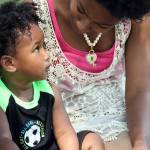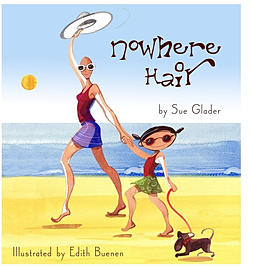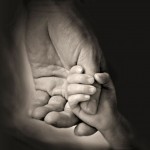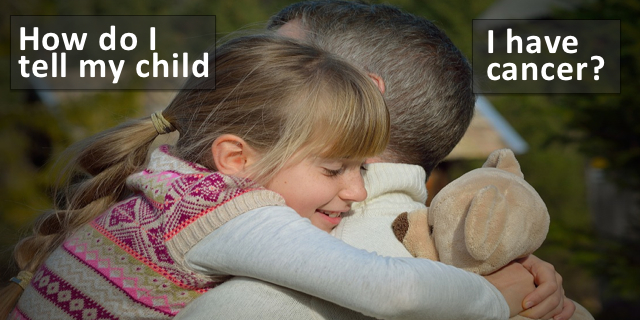A cancer diagnosis is overwhelming. So is the prospect of telling your children about a cancer diagnosis.
Social media makes it possible for parents to share strategies and provide guidance to others facing this challenge. Here are some insights.
Insight 1: Tell Your Children the News
 Parents protect. The natural inclination is to keep diagnoses of serious illness from your children. If your child is away at college or on her own, you may think it is better to keep the cancer news to yourself. But as Adrian McClenney @pinkhhstboots shared on #BCSM, “My daughter was 9 and my son 19 when I was diagnosed. My son had just left for college and I chose to not tell him. WRONG MOVE.” Your children need to know.
Parents protect. The natural inclination is to keep diagnoses of serious illness from your children. If your child is away at college or on her own, you may think it is better to keep the cancer news to yourself. But as Adrian McClenney @pinkhhstboots shared on #BCSM, “My daughter was 9 and my son 19 when I was diagnosed. My son had just left for college and I chose to not tell him. WRONG MOVE.” Your children need to know.
Insight 2: Age Matters
Be age appropriate. Using language her child understood, Heidi Floyd @followheidi said in a tweet, “I told my 8 yo that my cancer was trying to break my body, but my oncologist was smarter than cancer. Meds would hurt but help.” A number of parents on the Twtter chat highly recommended a book for children 3 to 7 called No Where Hair.
Lori Marx-Rubiner keeps an eye on her teenage son’s Internet research,  Writing in a blogpost on the subject, “Kids will find answers to their questions however they can, and can’t necessarily distinguish between good and bad info.”
Writing in a blogpost on the subject, “Kids will find answers to their questions however they can, and can’t necessarily distinguish between good and bad info.”
Insight 3: It’s Okay To Ask for Help
Taking on this conversation alone is daunting. It’s okay to ask for help. As Kimberly Jewett @2Xbcsurvivor76 explained, “I spoke to teachers, pediatrician, psychologist, and researched online to see what other info was out there.”
Even though for Jamie Holloway @jamienholloway “It was important that they heard the whole story from me- no secrets makes it less scary.” There are situations where another parent or family member may be needed. As Brandie @brandie185 explained, ““My oldest wouldn’t talk to me about her fears/worries. In typical oldest child, she didn’t want to burden me more. My husband had to finally corner her and say please, please unburden to me. And she did. And it was good.”
As the saying goes, “It takes a village’ so engage community, friends and neighbors, church and synagogue. Beverly McKee, LCSW @navigatingbc tweeted, I “Talked to school, teachers, bus driver, counselor at school so everyone would watch for signs of my boys needing help processing.”
Insight 4: Think Outside the Box: Openness and honesty with a touch of play works.
Finding ways to reassure can be as easy as eating comfort foods,  as Brandie explained, “After I told them all about the cancer and we cried and hugged, I went and got us chocolate. It was 10am. Even today [the children] remember…the chocolate and decided that was a good thing for us.”
as Brandie explained, “After I told them all about the cancer and we cried and hugged, I went and got us chocolate. It was 10am. Even today [the children] remember…the chocolate and decided that was a good thing for us.”
Playfulness in the face of fear can also reassure, “We had a shaving party…my boys shaving my hair when it was time; it helped lighten the otherwise dark moment. “ Kimberly relates. She also found that “Joining me at Chemo on a few occasions allowed them to see I was safe and well taken care of during those long infusions…”
Insight 5: Use Recommended Resources
Books:

Camp:
Camp Kesem, a network of free camps run by college students, is especially for children whose parents have cancer. In 2014, 54 chapters served 3980 children.
Website:
Telling Kids About Cancer, takes a parent step-by-step through the conversation. In fact, it allows you to compose your script assuring that you include everything.
Insight 6: Catch Faulty Thinking Early
“I did something to cause the cancer” or “I thought something to cause cancer” are beliefs that people, young and old, hold onto. Be sure to tell your loved ones, children and adults alike that “Nothing you did or thought caused my cancer.” Freeing others from magical thinking and inappropriate guilty is an enormous gift to them. Be sure to give yourself that same gift.
Insight 7: Discuss the Unknowns
Even though it’s frightening children need their parents to acknowledge that death is part of life. Kimberly tweeted, “Will you die?” was the key question/fear all 3 of my boys had at 7, 8 & 10. I am honest about unknowns but reassuring.”
Corrie Painter’s @corrie_painter children “ask me point blank if and when I’m going to die. I smile and say, not today.”
 Perhaps Lori Marx-Rubiner explained it best when she wrote, “Ultimately… I acknowledge that I’m dying – and that we ALL are. I help him see my illness in the broad and beautiful context of ‘None of us knows what tomorrow will bring, but living in a space that reminds us of our mortality can, if we choose, make life richer.’ I help my son, and my family, live in the glow of precious moments.”
Perhaps Lori Marx-Rubiner explained it best when she wrote, “Ultimately… I acknowledge that I’m dying – and that we ALL are. I help him see my illness in the broad and beautiful context of ‘None of us knows what tomorrow will bring, but living in a space that reminds us of our mortality can, if we choose, make life richer.’ I help my son, and my family, live in the glow of precious moments.”
Savor, treasure, value, seize the moment. Words to live by.
Please share your insights and guidance in the comments section. What do you recommend? How did you tell your child you had cancer?






